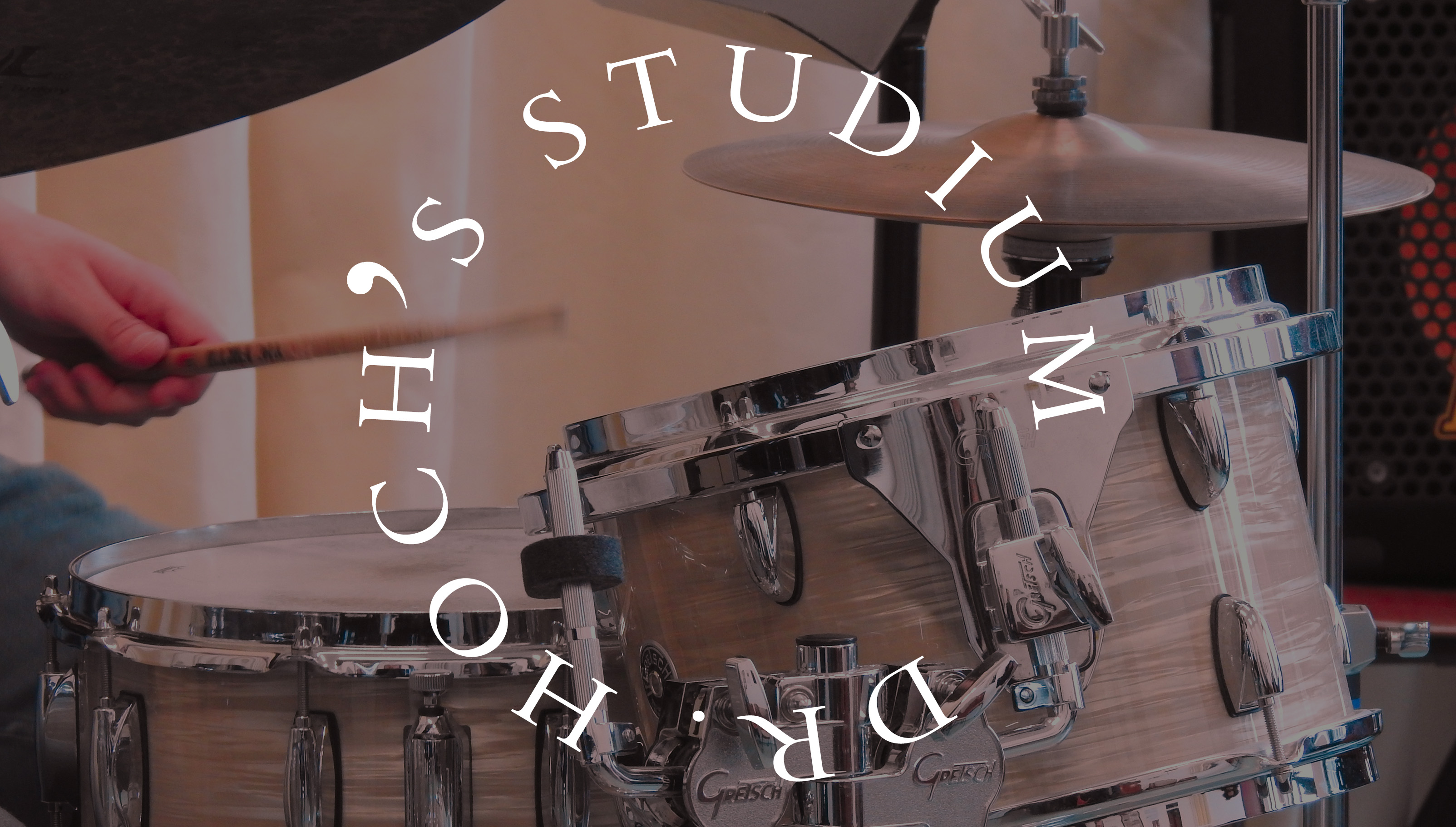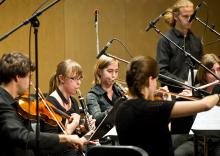Dr. Hoch's Conservatory - Music Academy Frankfurt/Main is a state-accredited training institute
Bachelor of Music
Type of course:
Music - Pedagogical Artistic Orientation
1. Instrumental studies or voice
2. Jazz and Popular Music
3. Elementary Music Education (EMP)
4. Composition
The study course "Music Pedagogical Artistic Orientation" at the Dr. Hoch's Conservatory has 8 semesters and finishes with professional specific qualifications, enabling the students to join the professional world as independently working, respectively employed musicians. Alternatively, further studies in Master programmes in Germany or abroad are possible. Well-founded knowledge and abilities to join a diversity of musical jobs are offered with the study profiles of "Instrumental studies, composition or voice", "Jazz and Popular Music" as well as "Elementary Music Education". An innovative and job-orientated course of studies has been developed, which pursues the professional picture of a pedagogically orientated musician. Studying at the music academy offers the possibility to integrate professional practice into the course of study right from the beginning. Compulsory, accompanied practical experience, which can be taken at the institute itself, due to the structure of the conservatory, introduces the students to the professional world and enables them to apply gained knowledge and to reflect upon practical abilities during the study course. Being so close to the future job situation makes it possible for the student to experience the profession of a pedagogically orientated musician in all its different facets and to already develop his future profession by combining the areas of artistic and pedagogic work during his course of studies. The cooperation of the conservatory with schools in Frankfurt is an ideal situation for guiding music pedagogical practice.
The aim of studies at the Dr. Hoch's Conservatory is not to create a restrictive perspective with regard the music profession, but to offer the students possibilities to develop their own activities in individual main areas by intensively occupying themselves with many facets of music, pedagogical as well as organisational aspects. Individual interests and personal engagement do finally decide their professional life. The practice-related environment at the Conservatory offers an intensive insight into possible professions and makes the start into the professional world easier. Classical areas of occupation for leavers are the so-called E- respectively U-music, e.g., in free and communal music schools, professional orchestras and choirs, instrumental ensembles and bands, leading ensembles, bands, choirs and orchestras, in children's day care centres and all-day schools and also in music organisational activities and advisory functions, music pedagogical work with youths and in cultural centres as well as institutes for adult education.
For all of the main subjects, piano is a compulsory subsidiary subject, unless this has been chosen as the main subject. There are special rules in this regard for the main subject, Guitar.
Given an appropriate level of proficiency, further subsidiary subjects from the regular subjects of the Department for Music Education for Youth and Adults (ANE) for their usual fee.
Study and Examination Regulations (since WS 2017/18)
 Studien- und Prüfungsordnung
Studien- und Prüfungsordnung
Entrance examination requirements
Requirements for access is proof of an university entrance qualification. If outstanding artistic talent is identified, access authorization can be waived in accordance with § 54 Abs. 4 Satz 3 of Hessisches Hochschulgesetz. Sufficient knowledge of the German language is also required. Proof of German language skills is therefore required for applicants from non-german-speaking countries.
Proof of sufficient German language skills must be provided by:
a) Certificate B 2 GER or higher or
b) Test DaF Niveau 3 or higher or
c) DSH-Prüfung, level 1 or higher or
d) German language diploma (KMK), level 1 or higher
or every certificate which corresponds to levels B2 or higher according to the Common European Framework of Reference for Languages of the Council of Europe.
Main subject - instrument:
Performance of three works of medium difficulty from different periods. One of the pieces of music performed can be an étude. Sight-reading of an easier piece.
Main subject - singing:
Performance from memory of songs and arias from different periods, including 1 song in German. Sight-singing. Duration of the examination approx. 15 minutes.
The management reserves the right to demand presentation of a current expert phoniatric report from an ENT doctor (phoniatrics specialist).
Obligatory subject - piano:
Performance of at least 2 pieces of medium difficulty from different periods.
Main subject - EMP:
Singing a prepared children's song of your own choosing.
Carrying out a spontaneously produced improvisation task on elementary instruments (e.g. drums).
Pedagogic suitability test with students on a specified subject.
Conversation about general questions in music pedagogy and the candidate's own ideas in the area of EMP.
Instrumental obligatory subject or singing
Performance of at least 2 pieces of medium difficulty from different periods.
Obligatory subject 2: Performance of two easy pieces from different periods.
Ear training:
One-part and two-part musical dictation, writing down chords and intervals, detection of errors in rhythm, singing of intervals and chords.
Musical setting:
(written and oral) knowledge of elementary music studies, critique of a given melody (4-part setting) without the aid of an instrument.
Main subject. Composition
Presentation of at least three original scores
Four-part setting in the style of the 17th or the 16th Century (cantional setting) for specified melodies.
Questions on a piece from the 20th or 21st Century
Ear training: One-part and multi-part listening
Obligatory subject - piano
Performance of at least 2 pieces of medium difficulty from different periods.


